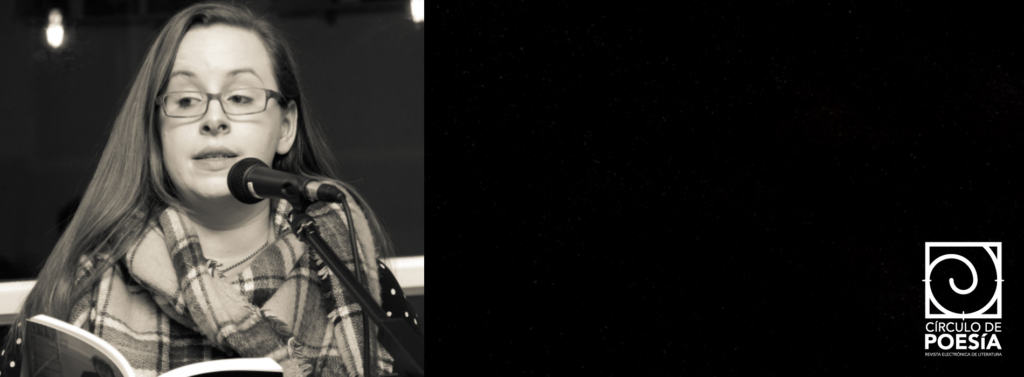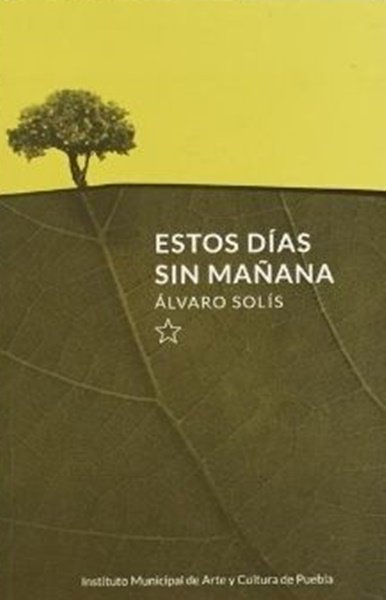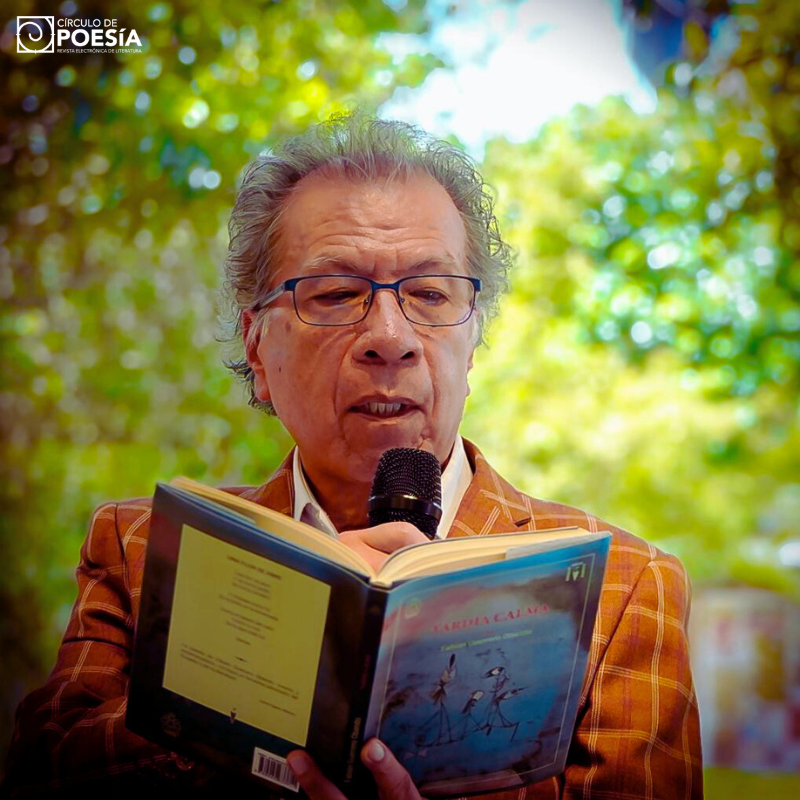Presentamos una selección de poemas de Christina Thatcher, nacida en Estados Unidos y residente en Gales, donde acaba de publicar su primer poemario More Than You Were (“Más de lo que fuiste”) con la editorial Parthian Books. El libro narra la experiencia de duelo personal de la autora tras la muerte por drogas y alcoholismo de su padre, en el 2015. Las traducciones han sido realizadas por el también poeta costarricense Esteban Alonso Ramírez.
Día uno
Mi madre me dio
la noticia a través de agudos
sollozos y maldiciones erráticas. Ella te llama
Papi — tu muerte me hace niña otra vez.
El teléfono es pesado, se hace aún más pesado
conforme entro y salgo de la conversación.
Pienso que debo ser práctica, debo escuchar,
debo hacer cosas. Pero no lo hago.
Solo me quedo quieta mientras el cuarto
se desplaza, lento y frío
como melaza.
Primeros borradores
Para cuando escribí tu obituario
ya había leído cientos de ellos,
buscando palabras que te encarnaran;
hiciste tan poco con tu vida.
Las primeras líneas fueron solo hechos:
tu edad, los nombres de tus hijos
cuándo y dónde moriste.
Luego escribí que fuiste amable,
en el fondo. Pensé que te debía eso,
del modo en que una madre le debe a su hijo
el vestirlo bien para su foto escolar.
No quería que te vieras mal
junto a los otros obituarios.
Decisiones
En la fría y mal iluminada oficina
del director funerario
se me dijo que escogiera una urna,
una que me gustara
o una que a él le hubiera gustado.
Estaban pulidas,
puestas en anaqueles iluminados
como diamantes en un centro comercial.
Con dos hombres imponiéndose detrás de mí,
su próxima cita tocando ya a la puerta,
seleccioné algo plateado
con un patrón celta
porque una vez mi Papá me dijo
que él tenía la piel de un irlandés,
la cual se ponía roja como langostas hervidas
en la olla de nuestra cocina.
Algo más
Vienen las ardillas
dijo mi tío, así es como les digo
a los vecinos. Llegaron
veloces y parloteando en minutos
para decirme cómo se veía mi padre
cuando lo hallaron: un pez globo en la cama.
Ella me dijo que tuvo un aborto espontáneo
pero que esperaba tener otro hijo;
mi papá le compró un vestido de bodas,
escondido en el armario listo
para cuando ella dejara de beber.
De pie junto a un poco de mierda de perro
ella me pidió dinero. Yo era la que limpiaba
me dijo. Yo limpiaba la casa.
Guía
Me pidió un recorrido,
el vecino con la botella de Corona;
afirmó que tu casa era la más grande
en el complejo. Lo miré fijamente y le dije:
yo soy la hija, no la agente de bienes raíces.
Por fa, sólo un vistazo. Suspiré, lo llevé
a tu cuarto más allá de las manchas de sangre,
las bolsas de basura humeante. Silbó,
tomó un sorbo de cerveza, estaba impresionado.
Tu muerte no le molestó en lo absoluto.
Sellado
Firmo el papeleo
que declara que alguien más
poseerá tu casa –
tomará posesión de las pulgas,
los pisos manchados de sangre,
las latas de tomates viejos.
No creo que nadie les haya dicho
a los nuevos dueños que más
de una persona ha muerto aquí.
Me los imagino haciéndose amigos
de los vecinos, bebiendo
latas tibias de Budweiser,
sudando en el calor de Florida;
cuerpos esponjados como repostería.
Los visualizo esperando por algo,
lo que sea, que suceda antes de que a ellos también
los vengan a sacar hombres en trajes de protección
desde el espacio donde tu cama
solía estar.
De vuelta al trabajo
Lucho con plazos, la administración diaria, desvelos,
trabajo duro y a buen ritmo, mi cabeza aún late
con imágenes tuyas –
el tazón verde de frijoles, sobrecalentado,
explotando en tus manos, nuestras camisetas
idénticas con róbalos, ese cinturón demasiado abajo.
Sin importar cuánto mecanografíe solo puedo pensar
en tu figura desgarbada, la manera en que te movías,
el cuerpo de un padre.
Hago lo que debo pero con desgano, con esfuerzo,
como si atravesara arena húmeda o estuviera envuelta,
de pies a cabeza, en celofán.
Terminología
En los meses que siguieron
aprendería la terminología
del duelo. Leería estallidos de dolor en blogs,
coleccionaría folletos informativos,
compraría más de un libro
con una mujer llorando en la portada.
Lo estudiaría. Le daría vueltas
y vueltas, lo obligaría a entrar
en la mente y no volver
a burbujear desde las entrañas
— ardiente y pesado —
como brea.
Ahora
Lloro todo el tiempo
en los lugares más inapropiados,
incluso cuando no estoy triste.
Mis ojos gotean como la gasolina
desde la bomba de combustible
que reparaste con cinta adhesiva
en mi viejo Ford Granada,
o como el techo del patio
que nunca lograste reparar
antes del incendio.
Mi cuerpo sabe que estás muerto
No importa cuánto sepa
que no debo estar llorando
en un cubículo de baño,
en mi oficina,
en la calle cuando veo
gente tomada de la mano,
mi cuerpo se acuerda
de vos, en las grandes lágrimas saladas
que se acumulan y derraman
igual que tu risa
cuando estabas vivo.
Siendo amable
Cuando la terapeuta me dijo
que creara mi propia metáfora para el duelo
(que lo representara como una alta montaña
o granos de arena deslizándose dentro un frasco)
solo pude pensar en machetes.
Solo pude recordar al hombre
que los coleccionaba en Filadelfia
y perseguía niños por la calle:
salvaje, impredecible, violento. Sabía
que esta mujer no lo aprobaría,
no quería que mi metáfora fuera
un hombre tambaleante, empapado en sudor.
En vez de eso le dije que mi duelo
era un río, encajonado por una ciudad enferma
siguiendo su camino lento y pesado
hacia el mar.
Etiqueta
Supe cuando moriste
que nunca más sería buena
para las veladas.
Mis amigos se rieron de ello.
Las cosas agradables dejaron de importarme.
Olvidate del clima, carreras
florecientes, niños echando dientes.
Contame acerca de tu trauma,
las noches en que no podés dormir.
Contame de cuando has fracasado—
herido como un venado en el bosque.
Contame cosas que nunca quisiste
decirle a nadie. Solo lo peor
me saciará ahora.
Resiliencia
Temblorosa paso frente a ella,
la paloma muerta en mi camino al trabajo
siempre en la misma posición
pero cada día con menos plumas,
menos órganos, más hojas.
Aunque me molesta
y hay vías más agradables
para ir, yo todavía escojo esta ruta,
todavía desacelero y miro directamente
hacia el cuerpo suave y abierto del pájaro,
me obligo a internalizar la pérdida,
con la esperanza de, algún día,
aceptarla.
Encontrándote
Cubierta con picaduras de garrapata y sudor
hallé el camino a la tienda de música
de la que hablabas. El hombre detrás
del mostrador sabía tu nombre, y el mío,
sacudió la cabeza cuando le conté la noticia,
qué pena, dijo. Entonces me di cuenta:
éste había sido tu lugar,
no la casa infestada de pulgas o las playas
llenas de agujas. No el cuerpo hinchado
en la cama.
Te había encontrado, aquí.
Cuando el hombre trajo la guitarra
lloré más de lo que jamás lo había hecho en público.
Me dijo que viniste todos los días
por dos meses antes de elegir
la que fuera perfecta para mí.
Day One
My mother breaks
the news through high-pitched
sobs and errant curses. She calls you
Daddy — your death makes me a child again.
The phone is heavy, becomes heavier,
as I flick in and out of the conversation.
I think I must be practical, must listen,
must do things. But I don’t.
I just stay still as the room
moves in, slow and cool,
like molasses.
First Drafts
By the time I wrote your obituary
I had read hundreds of them,
searching for words to flesh you out;
you did so little with your life.
The first lines were just facts—
your age, the names of your children
when and where you died.
Later I wrote that you were kind,
deep down. I thought I owed that to you,
the way a mother owes it to her son
to dress him well for his school photo.
I didn’t want you to look bad
next to the other obituaries.
Choices
In the cool, low-lit office
of the funeral director
I was told to choose an urn—
one that I would like
or one that he would like.
They were polished,
placed on spot-lit shelves
like diamonds in a strip mall.
With two men towering behind me,
their next appointment knocking,
I selected something silver
with a Celtic pattern
because once my Dad told me
he had the skin of an Irishman,
that turned red as boiled lobsters
from our kitchen pot.
Something else
The squirrels are coming
my uncle said, that’s what I call
the neighbors. They came
swift and chattering within minutes
to tell me what my father looked like
when they found him— a blowfish on the bed.
She said she had a miscarriage
but hoped for another child—
my dad bought her a wedding dress,
tucked away in the closet ready
for when she stopped drinking.
Standing next to a pile of dog shit
she asked me for money. I was the cleaner
she said. I cleaned the house.
Guide
He asked for a tour,
the neighbor with the Corona—
claimed your house was the biggest
in the complex. I stared at him and said,
I am the daughter not the realtor.
C’mon, just a quick look. I sighed,
led him to your bedroom past the blood stains,
the sacks of steaming garbage. He whistled,
took a swig of beer, was impressed.
Your death didn’t bother him at all.
Sealed
I sign the paperwork
which states that someone
else will own your house—
take possession of the fleas,
the blood-stained floors,
the cans of old tomatoes.
I don’t think anyone has told
the new owners that more
than one person has died there.
I imagine them making friends
with the neighbors, drinking
warm cans of Budweiser,
sweating in the Florida heat—
bodies puffed up like pastry.
I picture them waiting for something,
anything, to happen before they too
are carried out by hazmat men
from the space where your bed
used to be.
Back to Work
I push through deadlines, daily admin, late nights,
work hard and steady, my head still pounding
with pictures of you—
the green bean bowl, overheated,
exploding in your hands, our matching
seabass T-shirts, that low-slung belt.
No matter how much typing I do I can only think
of your slopped frame, the way you moved,
a father’s body.
I do the things I need to do but dully, with effort,
as though I’m wading through wet sand or wrapped,
head to toe, in cellophane.
Terminology
In the months that followed
I would learn the terminology
of grief. Read outpourings on blogs,
collect informational leaflets,
buy more than one book with
a woman crying on the cover.
I would study it. Turn it over
and over, will it to move
to the mind and no longer
bubble up from the gut
— searing and heavy —
like tar.
Now
I cry all the time
in the most inappropriate places,
even when I don’t feel sad.
My eyes leak like gasoline
from the fuel pump
you masking-taped together
in my old Granada,
or like the patio roof
you never managed to patch up
before the fire.
My body knows you’re dead.
No matter how much I know
I should not be crying
in a toilet cubicle,
in my office,
on the street when I see
people holding hands,
my body remembers
you, in the fat salty tears
which well up and spill
out, just like your laugh
when you were alive.
Playing Nice
When the therapist told me
to create my own metaphor for grief—
to represent it as a tall mountain
or grains of sand trickling into a jar—
I could only think of machetes.
Could only remember the man
who collected them in Philly
and chased children down the street—
wild, unpredictable, violent. I knew
this woman would not approve,
did not want my metaphor to be
a lurching, sweat-soaked man.
Instead I told her that my grief
was a river, boxed in by an ailing city,
making its way slow and heavy
to the sea.
Etiquette
I knew when you died
I would no longer be good
at dinner parties.
My friends laughed about it.
I stopped caring for pleasant things.
Forget the weather, budding
careers, teething children.
Tell me about your trauma,
the nights when you can’t sleep.
Tell me when you’ve failed—
clipped like a deer in the forest.
Tell me things you never wanted
to tell anyone. Only the worst
will sate me now.
Resilience
Shuddering I walk past it,
the dead pigeon on my way to work
always in the same position
but each day with fewer feathers,
less organs, more leaves.
Even though it upsets me
and there are more pleasant ways
to go — I still choose this path,
still slow down and look directly
at the bird’s soft, open body,
force myself to internalize the loss,
hoping that one day
I’ll accept it.
Finding You
Covered in tick bites and sweat
I found my way to the music store
you’d talked about. The man behind
the counter knew your name, and mine,
shook his head when I told him the news,
such a shame, he said. Then I realized it,
this had been your place,
not the flea-infested house or the beaches
full of needles. Not the bloated body
on the bed.
I had found you, here.
When the man brought out the guitar,
I cried more than I ever have in public.
He said you came in every day
for two months before you chose
the perfect one, for me.





